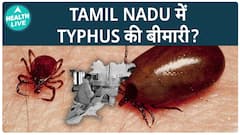SC to continue hearing plea filed by woman seeking direction to terminate her 23-week old pregnancy

New Delhi [India], June 29 (ANI): The Supreme Court will today continue the hearing on the plea filed by a Kolkata-based woman, Sharmishta Chakraborty, seeking its direction to terminate her 23-week old pregnancy.
Sharmishta, in her petition, has claimed that her foetus had severe complications and may die if allowed to be born.
The Apex Court, in its last hearing, asked to constitute a medical board to look into her and her foetus's health condition.
On June 24, the Apex Court wanted to stretch the law on abortion that will allow termination of pregnancy beyond 20 weeks if the foetus is suffering from severe abnormalities.
The Supreme Court bench of Justices Y.V. Chandrachud and S.K. Kaul said they needed to stretch the law a little bit while considering a petition by a pregnant woman wanting to abort her 23-week foetus.
Sharmishta approached the Supreme Court asking permission to abort her foetus after she discovered that her child she carried suffered from severe cardiac problem. She presented to the court a report by paediatric pulmonologist, Dr. Devi Shetty, which said the foetus was suffering from a severe form of cardiac impairment called pulmonary atresia and has a high possibility of permanent brain damage.
After going through the report, Justice Chandrachud said, "In situations like these, you have to look at the quality of life for the mother too. Look at the plight of the mother who lives in a constant fear that her child will be brain dead even after a corrective surgery."
The court then directed setting up of a seven member medical board and asked it to examine the physical and mental health of the pregnant woman in the next four days. Besides the immediate relief for permission to abort, Sharmishta also challenged the 20-week ceiling on abortion in India.
In her petition, Sharmishta stated that 26 million births that occur in India every year, approximately 2-3 percent of the foetuses have a severe congenital or chromosomal abnormality. Many suffer Intrauterine Foetal Death (IUFD) or are still-born. It is possible to detect certain abnormalities before 20 weeks while other abnormalities can be detected only after 20 weeks. (ANI)
This story has not been edited. It has been published as provided by ANI
Trending News
Top Headlines































